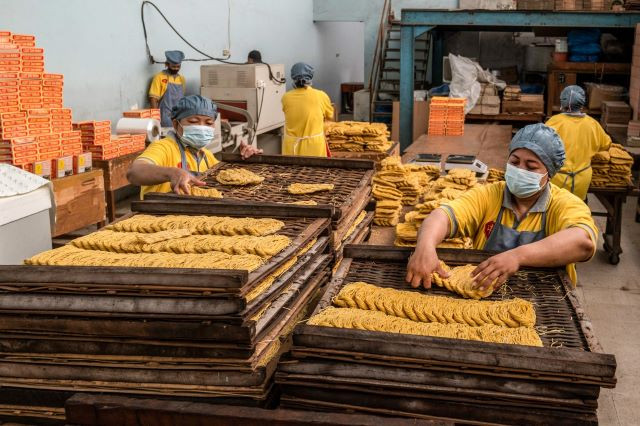Popular Reads
Top Results
Can't find what you're looking for?
View all search resultsPopular Reads
Top Results
Can't find what you're looking for?
View all search resultsWorld recognition provides hope for better archive preservation
Inu Kertapati, or Panji Asmarabangun, a crown prince and Javanese hero abandoned his throne to begin a journey in search of his true love, Princess Candra Kirana
Change text size
Gift Premium Articles
to Anyone

I
nu Kertapati, or Panji Asmarabangun, a crown prince and Javanese hero abandoned his throne to begin a journey in search of his true love, Princess Candra Kirana.
After dozens of dramas, adventures and even battles against demons, they finally reunite.
The romantic myth of Panji and Candra Kirana was written in the 13th century, and indicates the beginning of the development of Javanese literature. In the following decades, during the era of the Majapahit kingdom, the Panji tales became popular and spread to other countries such as Cambodia and Myanmar via sea
traders.
Today many Indonesians are unaware of the tales, which provide lessons about sacrifice, sincerity and heroism, but recent recognition by UNESCO has given hope for better preservation of such cultural treasures.
The Panji tales, along with two other pieces of documentary heritage — the archives of Borobudur Temple’s conservation between the 1960s and 1980s, which include photos, slides and film, and the archives of the Indian Ocean tsunami of 2004 — have recently been listed in the Memory of the World.
The three archives were proposed by three government-sanctioned institutions: the National Library, the Borobudur Conservation Agency, and the National Archive Agency, respectively.
This documentary heritage should also play a significant role in the world’s history, said National Library’s preservation unit head Sri Sumekar.
Therefore, the three institutions will now focus on how to adapt to the growing use of the internet by digitalizing the documents and uploading those on the internet to enable access for people around the globe.
As a start, the National Library deciphered hundreds of lontar (palm-leaf) Panji manuscripts from three different versions of Javanese, Bali-Lombok, and Melayu texts. They later translated the texts into English, Sri said, which is among the mandatory conditions set by UNESCO.
“There are at least 76 scripts and 22 titles that tell the Panji tales in the National Library alone. There are also hundreds of other Panji scripts that can be found in the Netherlands, Malaysia, Cambodia and United Kingdom,” she said.
Just like the National Library, Iskandar M. Siregar from the Borobudur Conservation Agency said that his office had compiled plenty of documents about Borobudur’s restoration and presented them in a mobile app.
In its bid to attract more readers, the app also contains information about the temple’s history, various kinds of flora and fauna around the temple and tourist guidelines.
“We have launched Borobudurpedia for Android users to allow people to learn all about the temple easily,” he said.
It was no easy task to get such archives listed in the Memory of the World, Fauzi Sulaiman, the Indonesian envoy to UNESCO, said.
In order to get the recognition, UNESCO needs to ensure there is a specific institution with a clear budget for preserving and conserving the documents.
“Certainly, such recognition should make the whole nation proud but there is a huge responsibility that comes with it. The respective institutions must regularly present a report to UNESCO about how they manage and maintain their preservation and conservation plans,” Fauzi said.
The three archives bring to seven the total of Indonesian Memories of the World. The other four are the manuscript of Nagarakertagama, the chronicle of Javanese noble and national hero Diponegoro, the archives of the Bandung Asia-Africa Conference and La Galigo, a poetic text of the Bugis language in South
Sulawesi.
However, this number is still far from representative of the vast Indonesian textual heritage.
Bambang Subiyanto from the Indonesian Institute of Science (LIPI) said there were major collections that had not been registered in the state archives, thus hampering the preservation efforts. (vla)









